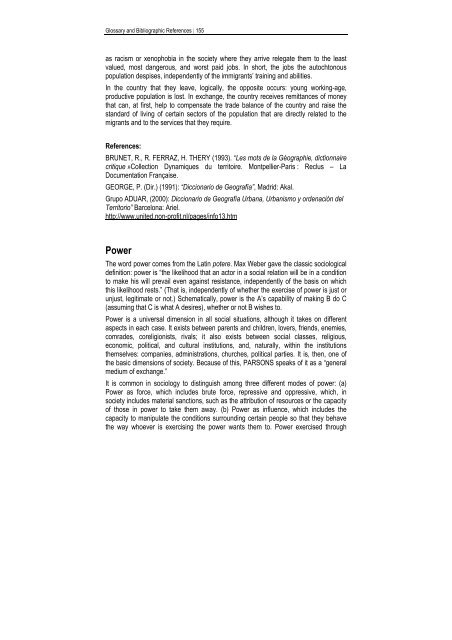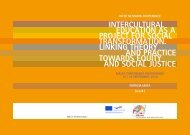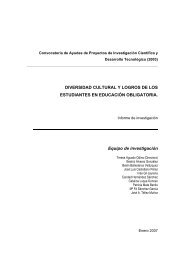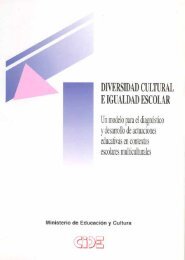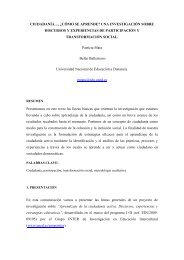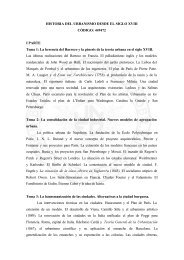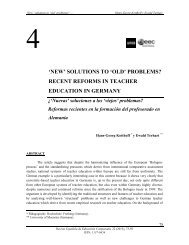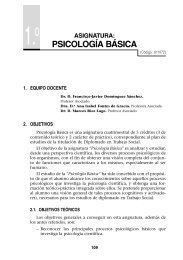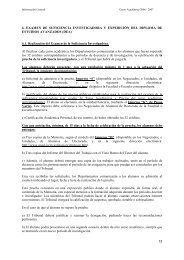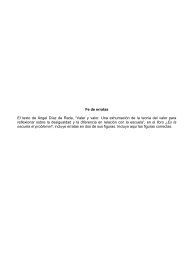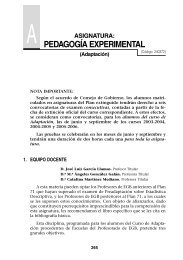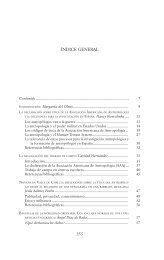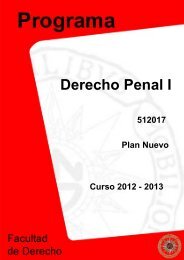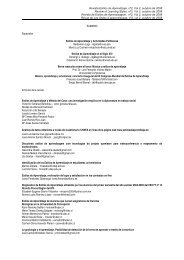Racism: What It Is and How to Deal with It - Uned
Racism: What It Is and How to Deal with It - Uned
Racism: What It Is and How to Deal with It - Uned
Create successful ePaper yourself
Turn your PDF publications into a flip-book with our unique Google optimized e-Paper software.
Glossary <strong>and</strong> Bibliographic References | 155<br />
as racism or xenophobia in the society where they arrive relegate them <strong>to</strong> the least<br />
valued, most dangerous, <strong>and</strong> worst paid jobs. In short, the jobs the au<strong>to</strong>ch<strong>to</strong>nous<br />
population despises, independently of the immigrants’ training <strong>and</strong> abilities.<br />
In the country that they leave, logically, the opposite occurs: young working-age,<br />
productive population is lost. In exchange, the country receives remittances of money<br />
that can, at first, help <strong>to</strong> compensate the trade balance of the country <strong>and</strong> raise the<br />
st<strong>and</strong>ard of living of certain sec<strong>to</strong>rs of the population that are directly related <strong>to</strong> the<br />
migrants <strong>and</strong> <strong>to</strong> the services that they require.<br />
References:<br />
BRUNET, R., R. FERRAZ, H. THERY (1993). “Les mots de la Géographie, dictionnaire<br />
critique »Collection Dynamiques du terri<strong>to</strong>ire. Montpellier-Paris : Reclus – La<br />
Documentation Française.<br />
GEORGE, P. (Dir.) (1991): “Diccionario de Geografía”, Madrid: Akal.<br />
Grupo ADUAR, (2000): Diccionario de Geografía Urbana, Urbanismo y ordenación del<br />
Terri<strong>to</strong>rio” Barcelona: Ariel.<br />
http://www.united.non-profit.nl/pages/info13.htm<br />
Power<br />
The word power comes from the Latin potere. Max Weber gave the classic sociological<br />
definition: power is “the likelihood that an ac<strong>to</strong>r in a social relation will be in a condition<br />
<strong>to</strong> make his will prevail even against resistance, independently of the basis on which<br />
this likelihood rests.” (That is, independently of whether the exercise of power is just or<br />
unjust, legitimate or not.) Schematically, power is the A’s capability of making B do C<br />
(assuming that C is what A desires), whether or not B wishes <strong>to</strong>.<br />
Power is a universal dimension in all social situations, although it takes on different<br />
aspects in each case. <strong>It</strong> exists between parents <strong>and</strong> children, lovers, friends, enemies,<br />
comrades, coreligionists, rivals; it also exists between social classes, religious,<br />
economic, political, <strong>and</strong> cultural institutions, <strong>and</strong>, naturally, <strong>with</strong>in the institutions<br />
themselves: companies, administrations, churches, political parties. <strong>It</strong> is, then, one of<br />
the basic dimensions of society. Because of this, PARSONS speaks of it as a “general<br />
medium of exchange.”<br />
<strong>It</strong> is common in sociology <strong>to</strong> distinguish among three different modes of power: (a)<br />
Power as force, which includes brute force, repressive <strong>and</strong> oppressive, which, in<br />
society includes material sanctions, such as the attribution of resources or the capacity<br />
of those in power <strong>to</strong> take them away. (b) Power as influence, which includes the<br />
capacity <strong>to</strong> manipulate the conditions surrounding certain people so that they behave<br />
the way whoever is exercising the power wants them <strong>to</strong>. Power exercised through


